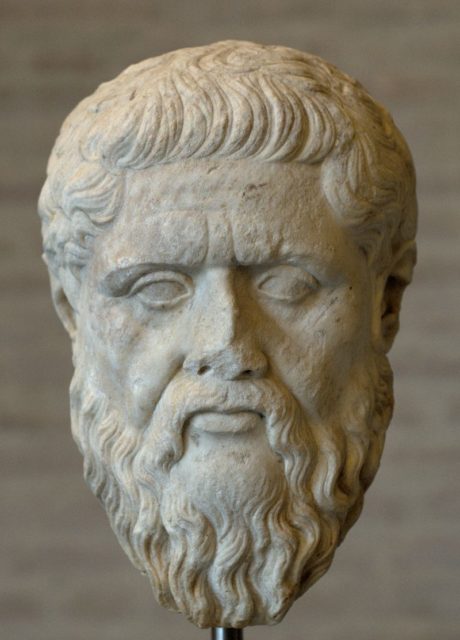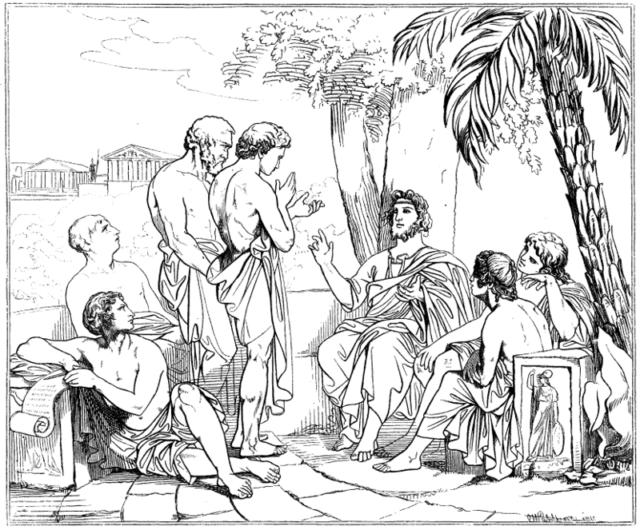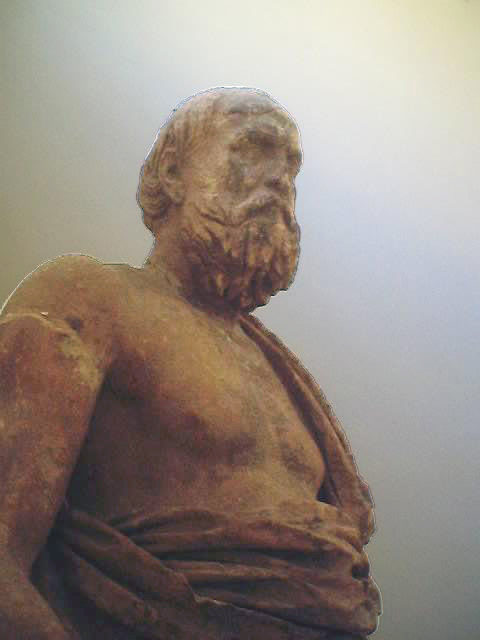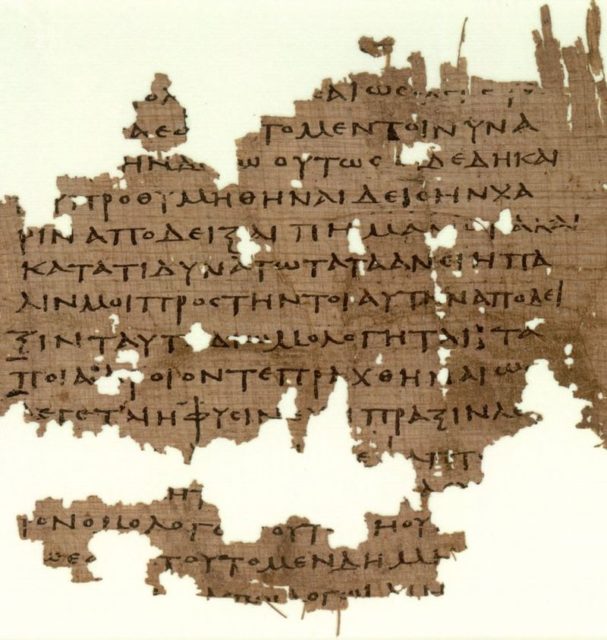Plato, one the most revered philosophers of ancient Greece, was born in Athens in about 428 BC and died there around 348 BC.
His parents, Ariston and Perictione, were from the elite society in Athens and made sure their children received the finest education possible. Plato admired Socrates and decided it was in his best interest to subscribe to the Socratic Method of education, in which students must arrive at their own conclusions based on asking probing questions instead of just disseminating information through lectures. In other words, he thought the best way to learn was to develop the art of critical thinking.


The Peloponnesian War between Athens and Sparta temporarily halted Plato’s education as he was expected to serve in the military. When Athens was defeated, the Spartans replaced the Athenian government with an oligarchy that succeeded in suspending the rights of Athenian citizens. After democracy had been restored, Plato thought about a political career, but when Socrates was executed by way of poison hemlock, in 399 BC for corrupting the students of Athens, Plato discarded his first idea and dedicated his life to philosophy instead. Although Socrates had left no writings, Plato and his other students had written down some of his theories and teachings to preserve them for the future.
For twelve years, Plato traveled the known world, studying mathematics, astronomy, and the makeup of different societies and their political and religious beliefs. He established an Academy in 385 BC, a school that taught this curriculum and also included biology, philosophy, and political theory. The Academy was closed down in 529 AD by the Roman emperor Justinian I, after the rise of Christianity because he felt the school represented pagan beliefs.
Plato wrote several dialogues, which are now presented as books. In Meno and Phaedo, Plato discusses his theory that people have past lives. He believed that knowledge acquired during these lives follows on to the next life, and is re-experienced by education received in the new life.



Plato uses his former teacher, Socrates, as a character in Meno. Meno asks him about the paradox of knowledge – how one would search for specific knowledge if one does not know what to search for. And, if found, how is it recognized? If the knowledge is known, why would one need to search? Therefore, there is no reason to seek knowledge.
In response, Socrates explains his theory of anamnesis, which consists of the idea that a soul is constantly reincarnated, or repurposed, and carries the knowledge it has acquired in each life throughout time. The psychological trauma of birth keeps humans from remembering the carried knowledge until they can reclaim it by way of education.
When he questions a boy about geometry and is given an inaccurate answer, Socrates helps the boy arrive at the correct answers by asking him questions. According to Plato, the boy could not have figured out the answer unless he already knew it; the questions merely helped the boy remember.

In Phaedo, Plato further addresses the theory of anamnesis by encouraging a pattern of life using catharsis, or purification. Using the senses of the body does not present the truth, but reasoning, using the instincts of the soul, will bring out the forgotten knowledge. He also discusses the difference between real knowledge and belief. Only true knowledge is carried with the soul, but belief is not knowledge.
Plato’s school curriculum has influenced education for thousands of years. His basic theories and tendency to stress mathematics have led to the ability to understand life and science in general. It was his hope that future generations would use reason to help equalize the population and help to establish a true democracy.
